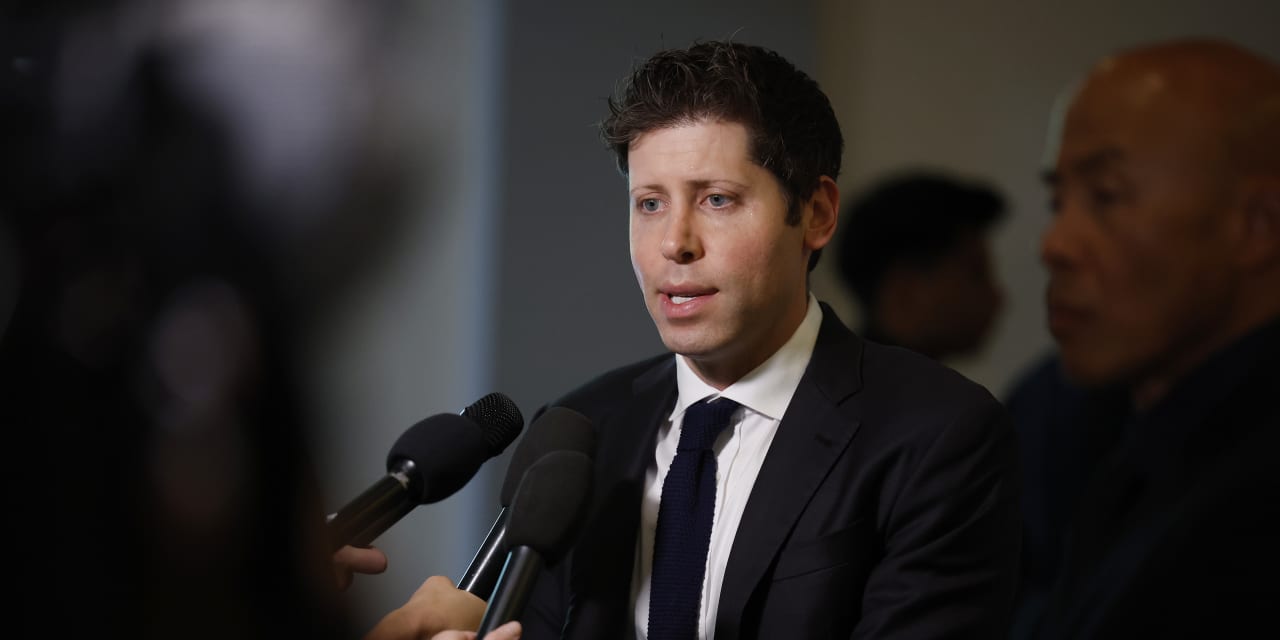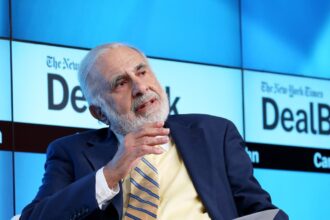OpenAI’s valuation could rise threefold to somewhere between $80 billion and $90 billion, making the artificial-intelligence start-up behind ChatGPT more expensive than publicly traded AI plays such as
Microsoft,
Alphabet,
and
Nvidia
by at least one measure.
The Wall Street Journal reported on Tuesday that OpenAI is in talks with investors about a potential sale of shares at that valuation that would allow employees to cash in by selling their stock to external investors. In the past, venture firms have purchased OpenAI shares through tender offers.
The company has told investors that it expects to reach $1 billion in revenue this year and generate many billions more in 2024, according to the Journal report, which cited people familiar with the discussion.
While the basic version of OpenAI’s ChatGPT is free, the company has been charging individuals for access to more advanced and powerful features. Companies that want to license and use OpenAI’s large language models in their products are paying up as well.
A valuation of $90 billion means investors would be paying $90 for each dollar of revenue generated this year. That would put the start-up ahead of some of the most expensive tech companies on the public market.
Microsoft (ticker: MSFT) and Alphabet (GOOGL) are leaders and early adopters in the AI software market. Microsoft invested billions of dollars in OpenAI and now owns 49% of the company. Alphabet is preparing its own AI program, Gemini, to compete with OpenAI’s most advanced large language model, GPT-4.
But neither company has the stratospheric valuation OpenAI could get.
Microsoft has a market capitalization of $2.3 trillion and Alphabet is at $1.6 trillion, with respective revenues of $222 billion and $305 billion forecast for calendar 2023. That means the market is valuing them at $10.50 and $5.30, respectively, for each dollar of revenue.
Nvidia is another major beneficiary of the AI fever because demand for its chips is expected to shoot up as artificial intelligence is used more widely. While the company posted $27 billion of revenue in the fiscal year that ended in January, it is on track to double that number for the current year.
Nvidia stock more than doubled this year on excitement over that growth. Its market valuation is currently at about $1 trillion, which means investors are paying $19 for each dollar of revenue they expect the firm to generate in 2023.
To be sure, it is common to see valuation of start-ups much higher than those of mature companies like Alphabet, Microsoft, and Nvidia. Investors in fledgling companies are paying for those businesses’ potential future profits, not just whatever they are earning now.
It makes sense that investors would chase after OpenAI because it is in the front lines of what appears to be a big technological shift.
If OpenAI employees can indeed sell their shares at the expected price level, it would make the AI company one of the most highly valued start-ups. It would rank only behind TikTok owner ByteDance and Elon Musk’s SpaceX, which are valued at $225 billion and $137 billion, respectively.
Privately held companies don’t have to disclose their financial data to the public, so it is difficult to compare their revenues to those valuation figures. But there are hints and leaks from the industry.
ByteDance posted $85 billion in revenue last year, the Information reported in August, citing people with knowledge of the company’s detailed financial results. That means investors are paying $2.60 for each dollar of revenue generated. According to the Financial Times, the company’s profits surged 79% last year to $25 billion.
SpaceX generated $1.5 billion in revenue during the first quarter of 2023, according to documents viewed by The Wall Street Journal. Extrapolating that number to $6 billion for the entire year indicates the firm is valued at $22.80 for each dollar of revenue generated. After years of losses, the rocket company also started generating slim profits this year.
OpenAI, which just started generating significant revenue after the release of ChatGPT in November, is most likely not profitable yet. Given how little revenue it has now, a valuation of $80 billion to $90 billion would say a lot about investors’ bullishness regarding AI.
The employee share sale could set a base price for any additional fundraising through new stock issuance, which is widely expected. Retail investors that want to bet their money on the AI company might be disappointed, though.
Chief Executive Sam Altman has said he doesn’t plan for OpenAI to go public soon or sell the firm to a buyer. “When we develop super intelligence, we are likely to make some decisions that most investors would look at very strangely,” Altman said at a conference in June. “I don’t want to be sued by […] public market, Wall Street etc., so no, not that interested.”
Write to Evie Liu at [email protected]
Read the full article here










